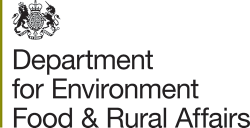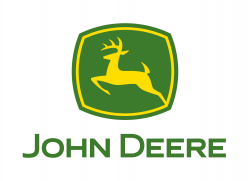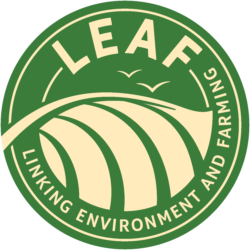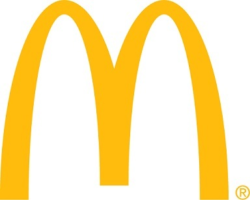LEAF Speak Out: Difficult Questions - General Q&A
Why do farmers get paid subsidy when other industries don’t?
There are many reasons, which all stem from the Common Agricultural Policy (CAP) which is a series of policies managed by the European Union. These include:
- Keeping the price of food lower. Typically, UK citizens spend just 7% of their annual incomes on food, versus 40% in the 1940s.
- To support livelihoods to retain people living in rural places.
- To support the management of the countryside for a host of targets, including wildlife, invertebrates (e.g. bugs and bees), birds, public access, soils, water quality, flood mitigation and many more.
- To support education of children and the wider public.
Why do farms smell?
At certain times of the year, for example in the winter when cattle are inside, or when the wind is blowing in a certain direction, such as towards your house, or when farmers are doing certain things such as spreading muck or slurry, smells can waft from farms.
These smells generally come from farm animals, their feed e.g. silage (pickled grass) or from other facilities on some farms e.g. an anaerobic digester used to break down organic wastes.
It is very hard for farmers to control these odours, just as it is for a sewage treatment plant and for humans when they use the bathroom for number twos!
Why are tractors so slow/do farmers hold up the traffic?
Tractors and other farm vehicles are built for power, not for speed. Some vehicles are also restricted on how fast they can travel. Farmers sometimes have to take farm vehicles such as tractors or combine harvesters on the road, for example to move them from field to field. Most farmers are very conscious and try to pull over into laybys to let other road users past. This isn’t always possible to do. We ask that you be patient, usually they won’t be going far!
Are you a rich farmer making lots of money? Why do you farm when so many farmers say it’s unprofitable?
Some years we make a profit, in other years, for example when it rains during harvest, or when the market prices for grain are low, we can lose money. Farming is a business, just like your local garage or your local shop. Like them, we need to make a profit to invest in new tools, in training so that we are complaint, to pay wages or to buy a new pair of wellington boots [hold up an old sole-less pair to make light of the question].
We carry on farming because this farm has been in the family for many years [tell your own farm story] and because we love it, it’s our way of life. We also believe in caring for the countryside and take pride in producing great quality food.
Why do farmers keep people off their land?
Many farmers openly welcome people onto parts of their farms e.g. footpaths or to events like this. In Scotland, they have a ‘right to roam’ law which allows wider countryside access.
There are many reasons why farmers ask the public to keep to the footpath, or away from certain parts of the farm, for example to keep you and your family safe. If there are new mother cows with calves, they can be protective and frightening if you get too close. There may be machinery working in a field, or trees being felled, so we ask that you keep away for your own safety. It is also to protect sheep from dogs being walked on farms. Dogs, even if they don’t usually chase, can chase sheep and, in some cases, maul younger sheep and lambs and even kill them or cause pregnant ewes to miscarry.
Do you agree with large-scale farming?
[We are/aren’t’ large scale farmers. Tailor how you answer depending on this but try not to undermine other systems.]
Larger scale farming has become necessary in today’s society. People have become used to paying £10 for three packs of chicken breasts or mince. It isn’t economically possible for farmers to do this in a free-range chicken system, or grazing beef cattle on grass, which is why free-range chicken in the supermarket is significantly more expensive than non-free-range.
But large-scale farming doesn’t mean bad farming. There will be very high standards of health and animal welfare, the animals’ diets will be very closely tailored to their needs and their environment (e.g. temperature, ventilation, bedding) will be comfortable for them.
If we didn’t ‘do’ large scale farming in the UK, it is likely that more cheap food would be imported from abroad where we have less control over the standards of welfare or production.
If, as a consumer, you want to support smaller scale producers, go to a farmers’ market, butcher or farm retailer and find out who and how your food is produced, then make a decision about which system you approve of and whose produce you want to buy.
In a supermarket, you will also have choice – for example, there are welfare- and environmentally-friendly brands such as RSPCA Freedom Food, Free-Range and LEAF Marque, all of which have unique guarantees about how that food is grown or reared.
If you are concerned, do more research and ask more questions, then base your buying decisions on what you discover.
Supported by the Crop Protection Association
Difficult question topics:
Why is it important to farm sustainably? |
|
Why do farmers keep people of their land? |
|
Do chemicals used in farming make people ill? - surely its better to be an organic farmer? |
|
Surely large-scale farming is really damaging the environment, destroying the soils and wildlife on the farm, and reducing the number of birds? |
|
Why does it matter where my food comes from? |
Supported by:

Sign up to our mailing list(s)
You are now subscribed!
You are signed up to the mailing list(s) you selected.
If you no longer wish to receive emails from us, every email we send contains a link at the bottom allowing you to unsubscribe with one click. Privacy Policy.















